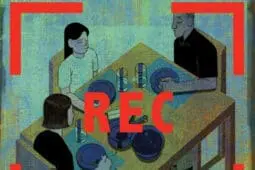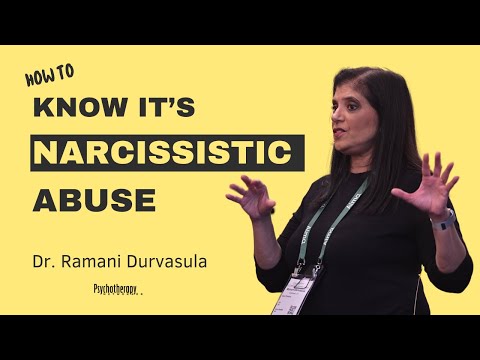
Clinical Practice & Guidance
Tips and techniques from your colleaguesThe Art of Detaching from Results
How We Measure Our Competence MattersFor therapists, doing something they love that challenges them—independent of their work with clients—can bring balance to their practice. Read more
"The Piece of Supervisor Advice I Still Use"
Four Exceptional Suggestions for Today’s TherapistsIt’s no surprise that a supervisory relationship can often be enlightening and steadying for both new and experienced therapists. But some therapists have... Read more
"I Just Want Your Advice!"
Four Top Responses to a Common Client PleaDo your therapy clients ask you for advice? We asked 5 top therapists what they do when clients say, “Just tell me what to do!” Read more
Video Intervention Therapy
Using Client's Home Videos as a Clinical ToolWhat if you and your clients could play back their everyday interactions outside of therapy, moment by moment, to uncover blind spots and reimagine family... Read more
FREE Download - Sept/Oct 2024
Get this issue's free clinical tool to use with your clientsThe FEELINGS - ACTIONS - SENSATIONS tool from Thomas Doherty helps clients reach desired emotional states Read more
The Hidden Trauma of Childhood Neglect
What to Make of Too Much of NothingThe way neglect can shape a child’s brain is often misunderstood. Read more
Is Existentialism the Approach of Our Time?
Awakening to Mortality and Responsibility in TherapyA millennial therapist believes that for clients to find true freedom and meaning in the midst of crisis, we need to help them face inescapable questions about... Read more
Personal Boundaries vs. Environmental Concerns
An Interview with Nedra Glover Tawwab: When Differing Values Create Interpersonal ConflictsDo interpersonal conflicts about environmental choices require a unique approach to boundary setting? Read more
Esther Perel on Working with Sexuality to Transform Relationships
And Busting Myths about Today’s RelationshipsObserve relationship expert Esther Perel in action as she helps couples navigate infidelity, incompatibility, and the impacts of childhood trauma. Read more
3 Tips for Working with Hard-to-Reach Clients
Matching Your Clinical Style with Your Client’s NeedsAre you matching your self-presentation and efforts with your clients' emotional capacity to respond? Read more
"I've Got Nothing to Talk About"
How to Work with Tight-Lipped ClientsWhat do you do when your client comes to session with nothing to say? Longtime experts in the field offer how to get the conversation going. Read more
Practice Tools: July/August 2024
The best from across the field of psychotherapy . . . on us!This month’s selection is from Lindsay Gibson’s Adult Children of Emotionally Immature Parents Guided Journal: Your Space to Heal, Reflect and Reconnect... Read more
Tammy Nelson Discusses Couple and Ketamine
A New Way to Enrich RelationshipsWatch our interview with relationship expert Tammy Nelson on how ketamine is supercharging couples work. Read more
Bessel van der Kolk: 'There's More to Life than Trauma'
The Question You Should Be Asking In SessionFrom his Symposium workshop, Bessel van der Kolk singles out the one question therapists should be asking their traumatized clients. Read more
Negotiating a Frightening World
What Role Can Therapists Play?Real world events are enough to cause anxiety in anyone. See how this therapist helped an anxious client see the world in a new way. Read more
Peter Levine on Going Beyond Talk Therapy to Heal Trauma
Using Somatic Experiencing® to Tap into the Unspoken Voice of Our BodiesLearning how to tune into the subtle shifts that are going on inside us all the time can open us to a wholeness that I call the Authentic Self. Read more
The Client No One Wants to Treat
What Happens When We Shun Pedophiles in Our PracticesAdvocates are calling on more therapists to consider how they can help people whose inclinations toward minors most of us find abhorrent. Read more
Do You Need Psychedelics to Access an Altered State?
How to Move Clients Out of Ordinary Survival ModePsychedelics can show clients an alternative to their suffering—but so can many softer, gentler, more gradual approaches clinicians have been perfecting... Read more
Taking Sides in Couples Therapy
The Importance of Ditching NeutralityWhen one partner is clearly in the wrong, being an impartial couples therapist can do more harm than good. Read more
Holotropic Breathwork
An Overlooked Path to Healing Experiences?In the midst of the psychedelic treatment revolution, have we forgotten about Stan Grof’s alternative to facilitating non-ordinary states of consciousness? Read more
The Dual Nature of Trauma Bonding
Beyond Abuser and VictimPartners who associate love and intimacy with the painful family dynamics of their formative years can get stuck in a familiar bond that’s hard to shake... Read more
Experiments In Being Someone Else
Can Fixed-Role Therapy Get Clients Unstuck?Trying on different personas can help clients step outside of their comfort zones and challenge their assumptions about themselves, others, and the world. Read more
Supercharging Couples Work with Ketamine
A Doorway to Greater IntimacyThe combination of therapeutic guides, ketamine, and community can open the door to deep, long-lasting relational change. Read more
How to Know It's Narcissistic Abuse
Signs to Watch for in TherapyWatch this clip of Dr. Ramani explaining the signs of narcissistic abuse in a relationship and what it looks like in your therapy office. Read more
Building Rapport with Victims of Narcissistic Abuse
Don't Shame Your ClientsWatch this clip of Dr. Ramani explaining how to help your clients who are survivors of narcissistic and build trust. Read more
What is Betrayal Blindness?
Dr. Ramani on Survivors of Narcissistic AbuseWatch this clip of Dr. Ramani explaining what betrayal blindness looks like in relationships impacted by narcissistic abuse. Read more
Practice Tools: May/June 2024
The best from across the field of psychotherapy . . . on us!Download a worksheet from this month’s selection: Nancy Johnston's "The Clinician’s Codependency Treatment Workbook." Read more
The Enduring Power of Bioenergetic Therapy
From Trauma to JoySometimes, transformational growth happens when we least expect it. Read more
Social Anxiety in Kids
How Our Good Intentions Make It WorseMaking accommodations for socially anxious kids can be easier than getting them off their phones and out of their rooms—but it’s also dangerous. Read more
Unlocking the Potential of Holistic Healing
Four Strategies to Bring the Body into TherapyAs the world embraces the theory of how trauma is captured in the body, clinicians are introducing clients to holistic healing techniques like sound baths and... Read more






























